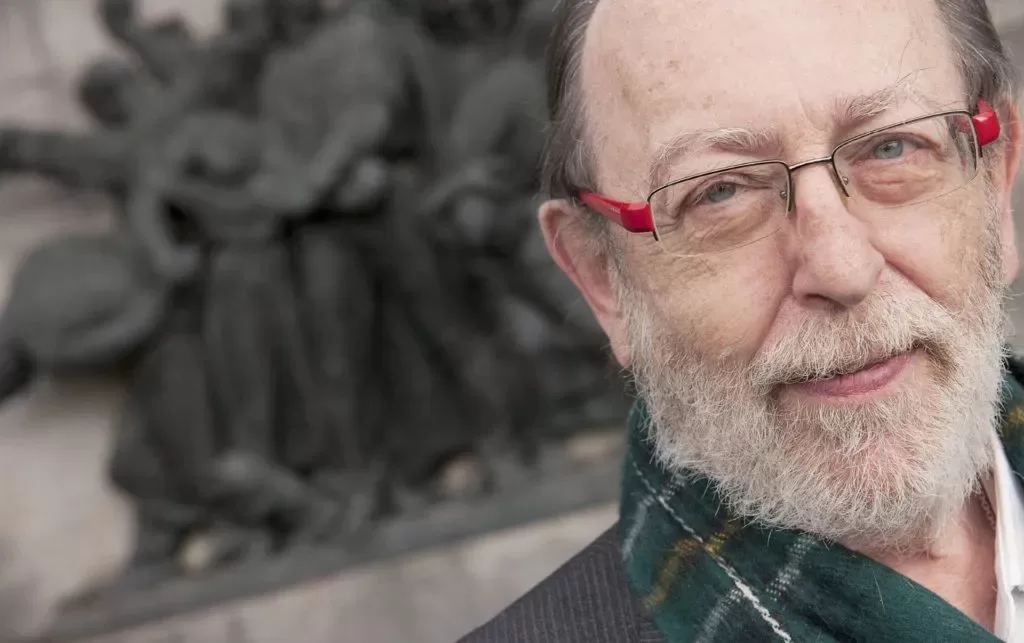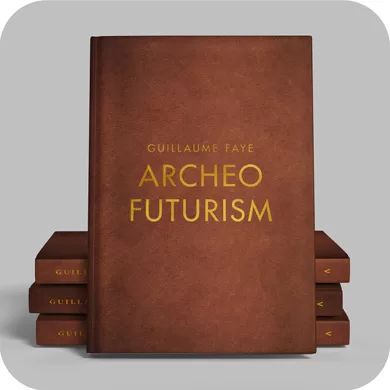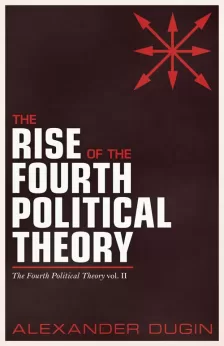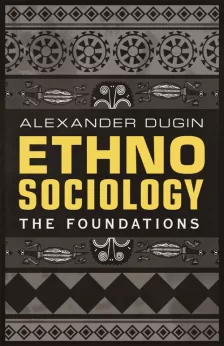Alain de Benoist, a towering intellectual colossus, arose amidst the ideological maelstrom of post-war Europe, as if summoned by the ancient gods themselves to stand against the relentless tide of modernity. His mind, a fortress of impenetrable thoughts, became the spearhead of the Nouvelle Droite, or New Right, an intellectual movement daring to challenge the mainstream dogmas that had seeped into the Western psyche. Like a warlord leading his loyal legions, de Benoist’s writings became the battle standards for those who rejected both traditional conservatism and bone-dry liberalism, opting instead for a potent elixir of paganism, ethnopluralism, and direct challenges to the reigning hegemony.
As the saga unfolded, de Benoist summoned into being GRECE, the Research and Study Group for European Civilization, serving as both sanctuary and stronghold for minds weary of the zeitgeist’s superficial chatter. Here, beneath the banner of GRECE, scholars and thinkers gathered like war-weary soldiers seeking refuge and engaging in the Sisyphean task of pushing back against the disintegrating pull of globalist agendas. This haven was no ivory tower but a citadel, the intellectual armoury from which de Benoist and his cohorts would wage their metapolitical campaigns. In the annals of Western thought, Alain de Benoist’s legacy endures not as mere ink on paper but as the bedrock foundation upon which new epochs might yet be built.
1.) Who are some American thinkers that you have come across that have inspired your own thought?
The first name that springs to mind is Christopher Lasch, whom I regard as a leading writer. He successfully traced the roots of late nineteenth-century American populism (the era of the Populist Party) and is somewhat the American counterpart of George Orwell (another of my favourite authors) in England. His work on the revolt of the elites and the culture of narcissism, and his popular and anti-progressive socialism are commendable, and he also made a scathing critique of the ideology of progress (The True and Only Heaven: Progress and Its Critics). I then think of Thorstein Veblen, the author of The Theory of the Leisure Class, one of the most significant American sociologists, in my opinion. Finally, I think of Ezra Pound, both for his critique of usury and his monumental literary work (his Cantos are on par with Dante’s Divine Comedy).
I’m very fond of certain great American novelists – for reasons that aren’t purely literary – such as William Faulkner, Herman Melville, Henry Miller, Edgar Allan Poe, Lovecraft, and John Steinbeck. I would give a special place to Jack London, another Orwellian socialist (The Iron Heel has been one of my bedside books). As an economist, I’ll simply mention Elinor Ostrom, the leading theorist of the ‘commons’, and as a philosopher, Roy Bhaskar, the father of critical realism theory. Among essayists, I greatly admire H. L. Mencken, as well as social critics like Lewis Mumford, Mike Davis, David Graeber, and Matthew Crawford. Among environmentalists, the foundational works of Aldo Leopold, Henry David Thoreau, and Lynn Townsend White, and authors such as J. Baird Callicott and Holmes Rolston III have given me food for thought.
In this brief list, I’ve only provided names of Americans born in the United States, not considering European authors who were naturalised Americans (otherwise, I would’ve begun by mentioning the great Hannah Arendt).
2.) How has the Nouvelle Droite [the French New Right] evolved over the years since its early inception in GRECE?
An entire book would be needed to answer this question! I would just say that the evolution of what has been called the New Right (NR) has mainly consisted of a continual deepening of its reflections. Some directions proved fruitless, while others emerged over the years. (Nothing is more contrary to the spirit of the NR than simplistic dogmatic ‘catechisms’ or repeating the same slogans). Social critique has strengthened, as has the critique of liberal capitalism (I use ‘liberalism’ in the European sense to mean proponents of the market order). Simultaneously, we’ve reached an increasingly broad audience, notably through the magazines Eléments, Nouvelle Ecole, and Krisis, while always keeping our core mission in mind: to better understand the historical moment we’re in, emphasise the historical subject of our time (formerly nations, now peoples), and be alert to the coming world.
3.) What do you feel are the greatest challenges facing the Nouvelle Droite today?
The greatest challenges, in my view, are managing migration flows, the commodification of the world, the global unleashing of the limitless capitalist logic of profit and the axiomatics of interest, the rise of forces of indistinctness, the denial of the distinctness of peoples, the increasing dependence of man on technology, and the long-term implications of artificial intelligence and the emergence of biotechnologies.
4.) What signs of cooperation or hope do you currently see in the broader identitarian movement/Nouvelle droite?
I don’t see many similarities. The NR and identity movements don’t even share the same conception of identity. The NR rejects ethnic nationalism and ethnocentric and xenophobic identitarianism, which stems from what Heidegger called the metaphysics of subjectivity. These are themes I develop in my latest book, Us and the Others: Identity without Fantasies (2023). Defending our people is, in my eyes, inseparable from the cause of all peoples, who must together face a dominant ideology that confuses equality with sameness. In relationships between peoples, I hope a relationship based on what Martin Buber called the ‘I-Thou’, as opposed to the ‘I-It’, can be established as much as possible.
5.) Thinking internationally, where would you want to see more cooperation between our various movements?
Cooperation among those with intellectual, ideological, or political affinities is always beneficial, but I believe it should be limited to personal exchanges, translations of books, and articles. I don’t believe in ‘internationals’, which always end up breaking due to personal issues or contradictions stemming from national traditions which are too different from each other.
6.) What are your views concerning the recent global shift towards multipolarity?
It’s a critical turning point and one I wholeheartedly support. The war in Ukraine, which is essentially a NATO war against Russia, has played a role in accelerating this. The United States, which is on a downward trajectory, hasn’t managed to isolate Russia from the rest of the world; quite the opposite. They won’t fare any better with China. The alignment of the BRICS (even if their interests aren’t always aligned) already suggests a move away from the dollar, which has already begun to materialise. That the West (an ‘Anglo-Saxon’ notion I don’t identify with: I’m not ‘Western’ but European) should gradually renounce the hegemonic unilateralism, which has long been its characteristic, pleases me greatly. I’d even say that today, on an international scale, the decisive battle is between multipolar forces and those trying to maintain unipolar dominance at the expense of peoples and cultures. This battle largely overlaps with the struggle between maritime and continental powers (Land and Sea, according to Carl Schmitt). Ultimately, what’s at stake is the diversity of the world.










Fascinating comments from M. De Benoist. I’ve always wanted to hear more of his thoughts about Americans.
It’s a little disappointing that he doesn’t see much room for cooperation, but I do see his point about personality conflicts derailing organizations sometimes.